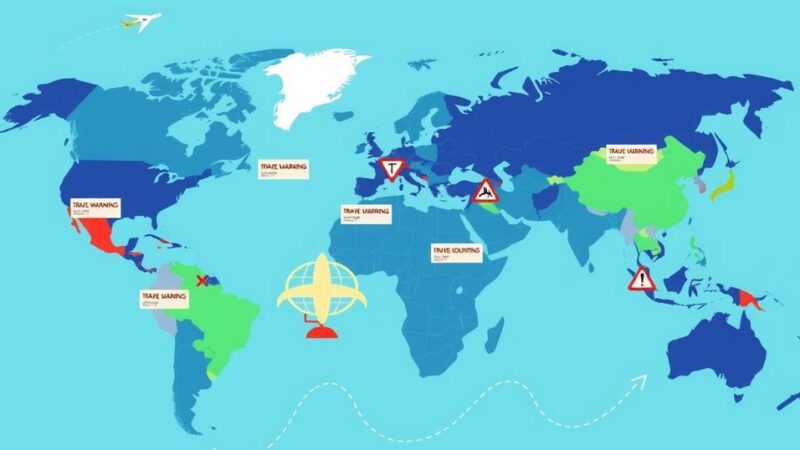Tropical Storm Dikeledi hit northern Mozambique, causing fatalities in Madagascar and triggering floods in Mayotte. INAM issued flood warnings as President Nyusi urged residents to seek shelter. The storm follows previous devastation from Cyclone Chido, with meteorologists attributing intensity to rising ocean temperatures linked to climate change.
Tropical Storm Dikeledi struck northern Mozambique on Monday, causing significant destruction and loss of life. Prior to making landfall in Mozambique, the storm had already claimed at least three lives in Madagascar and triggered severe flooding in Mayotte, a French territory. The storm has intensified over the coastal Nampula region, unleashing powerful winds and heavy rainfall, as reported by Meteo-France, the French meteorological service.
The National Institute of Meteorology (INAM) in Mozambique issued urgent flood warnings, predicting rainfall totals could reach up to 200 millimeters (nearly eight inches) in just 24 hours, coupled with wind gusts reaching 180 kilometers (110 miles) per hour. President Filipe Nyusi has urged the population in affected areas to seek shelter and prepare essential supplies. During a parliamentary session, he emphasized, “Go immediately to a safe shelter and stay there until the authorities give you further instructions.”
The storm caused grave impacts in Madagascar, where the government reported three fatalities and had struck the northern part of the island as a cyclone over the weekend. The repercussions of Dikeledi are substantial, especially given that Cyclone Chido had already devastated northern Mozambique in December, resulting in the deaths of at least 120 individuals and injuring more than 5,600 others in Mayotte. The conditions this season, characterized by warmer surface water temperatures in the Indian Ocean, contribute to the intensified nature of these storms, a phenomenon linked to global warming that has also been observed in other oceanic regions. The cyclical development of cyclones in this region typically occurs between November and March, suggesting continued vulnerability for the eastern coast of Africa as the storm progresses southward through the week.
Tropical cyclones are common occurrences in the Indian Ocean between November and March, a period when climatic conditions are conducive to their formation. Yearly, these storms can lead to devastating flooding and casualties, particularly in vulnerable regions like Madagascar and Mozambique, which often bear the brunt of these natural disasters. Recent trends indicate that rising ocean temperatures, a consequence of global warming, are increasingly influencing the ferocity of such storms, raising concerns among meteorologists and disaster management agencies worldwide. The impacts of previous cyclones, like Cyclone Chido in December, highlight the ongoing struggles these countries face in mitigating storm-related hazards.
In summary, Tropical Storm Dikeledi has already resulted in tragic fatalities and severe flooding across the affected regions of Madagascar and Mayotte. As it continues its path toward Mozambique, authorities are taking precautionary measures to protect life and property. The situation underscores the impacts of climate change on storm intensity and serves as a call for enhanced preparedness and resilience in coastal communities that frequently encounter such natural hazards.
Original Source: www.barrons.com






